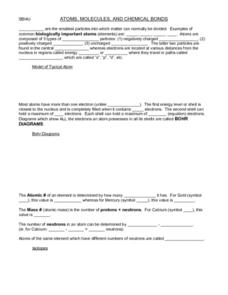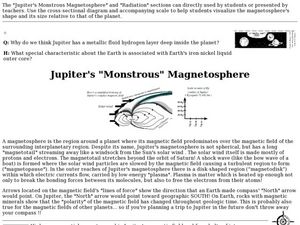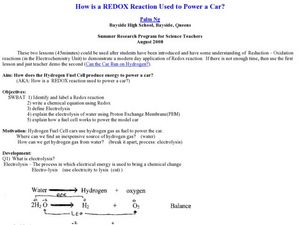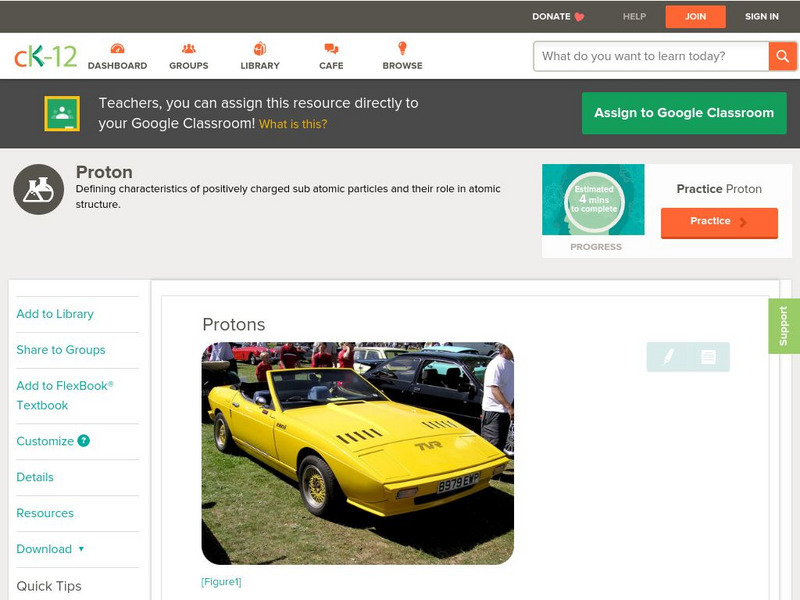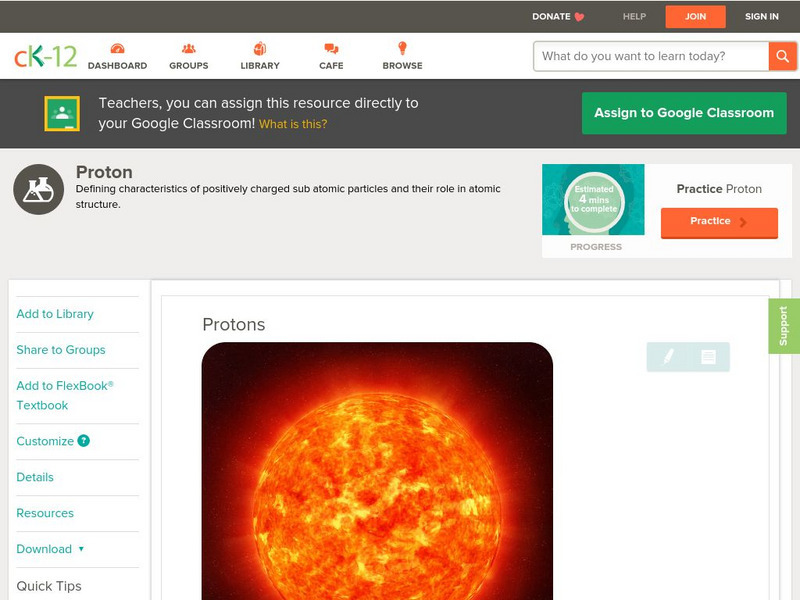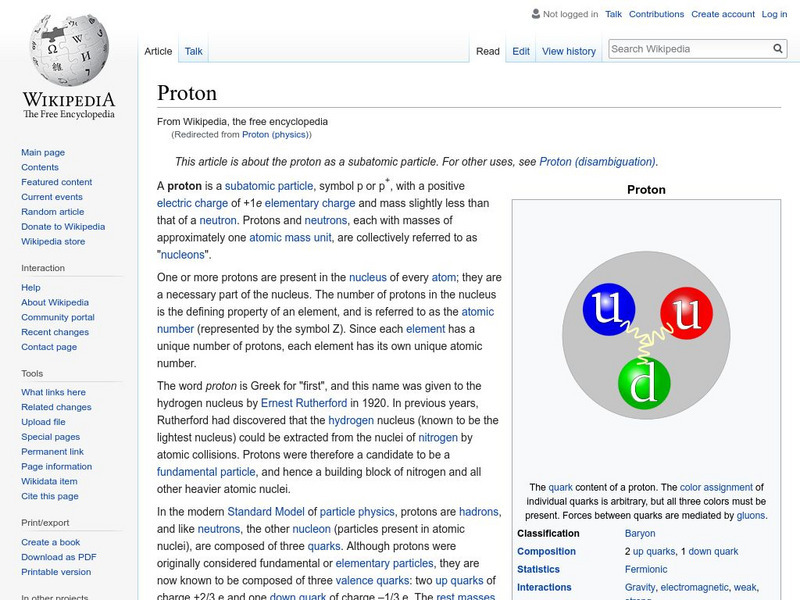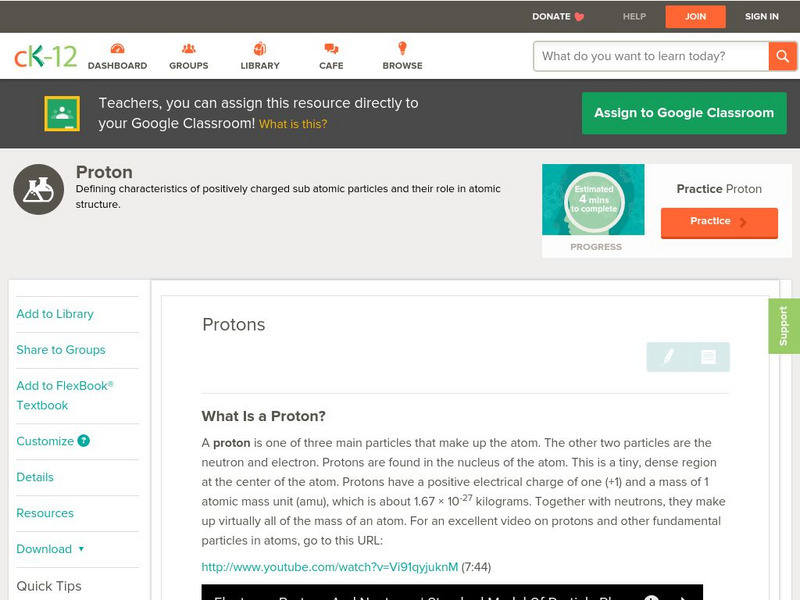Curated OER
Detecting Magnetic Materials in "Martian" Soil
Students simulate some of the Pathfinder experiments by devising methods of collecting and measuring magnetic substances in pseudo-Martian soil. The efficiency of each of the methods used to collect materials is evaluated in this lesson.
Curated OER
How do Ohm's Law and Constraint-Based Reasoning Help in Thinking About Circuits?
Pupils investigate Ohm's Law. Through experimentation, students observe Ohm's law. Using the voltage and resistance, pupils calculate with Ohm's law. Students collaborate in other activities to apply Ohm's Law to series and parallel...
Curated OER
Transformation of Energy
Sixth graders explore and discuss how several electrical devices work and what energy conversions occur in each device. They connect a zinc strip to a copper strip with alligator clips and wire, immersing each strip in lemon and check...
Curated OER
Organization of the Elements and Periodic Table
Learners identify how to relate the position of an element in the periodic table to its atomic number and atomic mass. They also identify and interpret how to use the periodic table to identify metals, semimetals, nonmetals, and...
Curated OER
Timing An X-ray Pulsar
Students use X-ray data to identify an object as a rotating neutron star, and determine its period of rotation. They use XTE observations of the Crab Pulsar to determine the period of the light intensity, interpret this period as the...
Curated OER
Atoms, Molecules, and Chemical Bonds
In this atoms worksheet, high schoolers review the parts of an atom, Bohr diagram, atomic number, mass number, and covalent bonds. This worksheet has 5 drawings and 26 fill in the blank questions.
Curated OER
A Guided Tour of the Periodic Table
In this periodic table worksheet, high schoolers write the chemical symbols for the given elements, compare atomic number and mass number, and describe the importance of valence electrons in the organization of the periodic table. This...
Curated OER
Basic Chemistry Review
Students experiment to show their knowledge of molecules and atomic structures. In this chemistry review lesson students participate in an activity and then fill out a worksheet.
Curated OER
Periodic Table Basics
In this elements worksheet, students review the periodic table and how the elements are organized in the periodic table. This worksheet has 5 short answer and 4 fill in the blank questions.
Curated OER
Jupiter's "Monstrous" Magnetosphere
Students explore Jupiter's magnetosphere. In this Jupiter instructional activity, students examine a diagram of the magnetic field that surrounds Jupiter.
Curated OER
How is a REDOX Reaction Used to Power a Car?
Students explore electrolysis and Redox reactions. In this exploratory lesson plan students demonstrate an example of electrolysis and how it brings on a chemical change.
Curated OER
Polymers
Students explore online tutorial on polymers. In this chemistry lesson, they create two polymers in the lab and compare their properties. They write a sales letter about their new and improved polymer product.
CK-12 Foundation
Ck 12: Chemistry: Protons
[Free Registration/Login may be required to access all resource tools.] Describes research on the proton and the determination of the weight of proton and electron.
CK-12 Foundation
Ck 12: Physical Science: Protons
[Free Registration/Login may be required to access all resource tools.] Protons and how they relate to elements, and what protons are made of.
Other
National Association for Proton Therapy (Napt)
Home page for NAPT; from here go to "Proton Facts", "Proton Q&A", "How It Works". A fund of info about current state of proton therapy. A good number of pix.
Khan Academy
Khan Academy: Proton Nuclear Magnetic Resonance Questions
This is a ten-question quiz pertaining to proton nuclear magnetic resonance.
Khan Academy
Khan Academy: Proton Beam Therapy: Particle Accelerators in Medicine
Read the passage "Proton Beam Therapy: Particle Accelerators in Medicine," and complete the related five-question quiz.
Wikimedia
Wikipedia: Proton
Wikipedia offers information on the proton, a subatomic particle with a positive electric charge. Many hyperlinked terms.
American Chemical Society
Middle School Chemistry: Protons, Neutrons, and Electrons
Explore the particles that make up atoms: protons, electrons, and electrons.
American Chemical Society
Middle School Chemistry: Protons, Neutrons, and Electrons
Investigate why a charged object is attracted or repelled by another charged object. Explore the concept that the attraction between positive protons and negative electrons holds an atom together.
CK-12 Foundation
Ck 12: Physical Science: Protons
[Free Registration/Login may be required to access all resource tools.] Protons and how they relate to elements, and what protons are made of.
Science Struck
Science Struck: How to Find Protons, Neutrons and Electrons
Brief explanations of how to determine how many protons, neutrons, and electrons are in an element.
Simon Fraser University
Chem1 Virtual Textbook: Protons and Electron Pairs
Acting as an overview from the General Chemistry Virtual Textbook, this site explores Lewis acids and bases with specific attention directed toward protons and electron-pairs. Other topics covered include proton-transfer reactions...
Simon Fraser University
Chem1 Virtual Textbook: Proton Donors and Acceptors
Acting as an overview from the General Chemistry Virtual Textbook, this site explores proton donors and related subjects including Bronsted acids and bases and Hydronium ions.
Other popular searches
- Protons Neutrons Electrons
- Protons, Neutrons, Electrons
- Protons, Neutron, Electrons
- Protons and Neutrons
- Protons, Electrons, Neutrons
- Electrons, Neutrons, Protons
- Electrons and Protons
- Atoms and Protons
- Protons Neutrons, Electrons
- Atoms Electrons Protons







